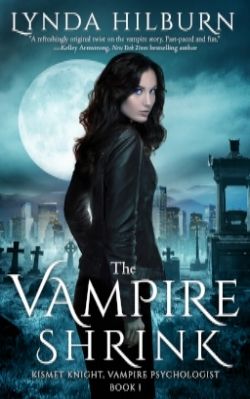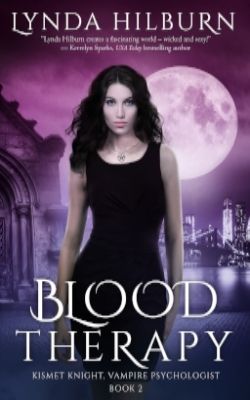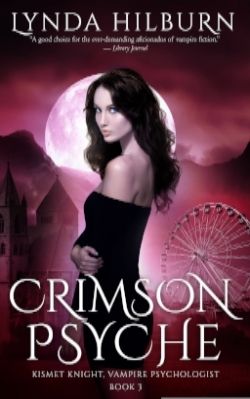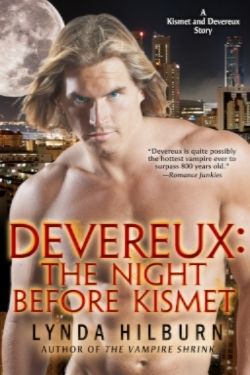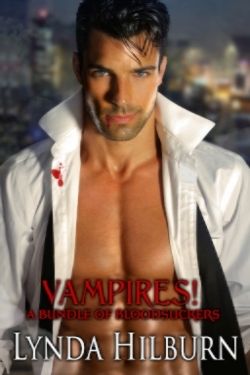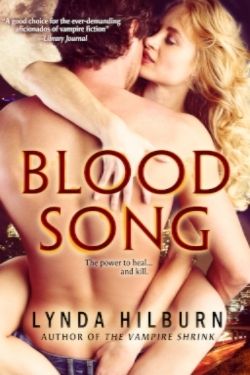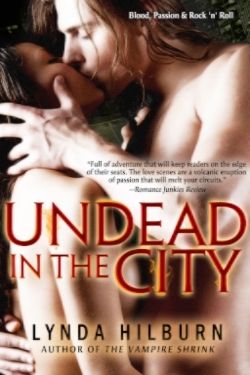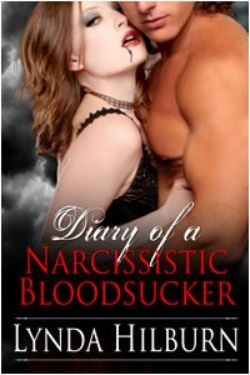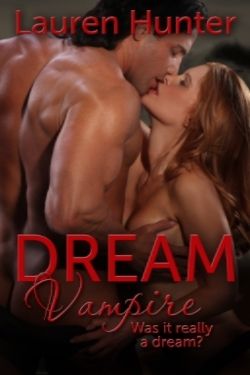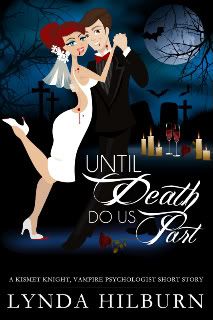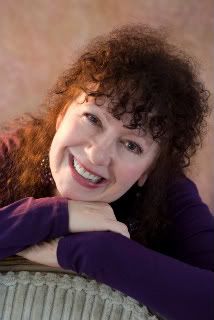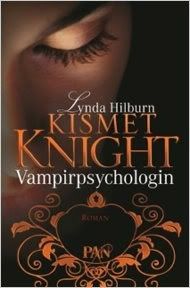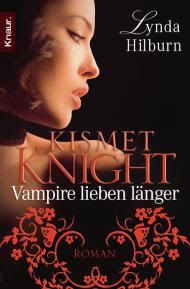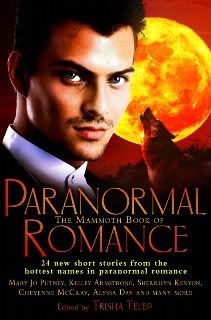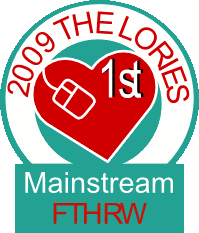Lynda: What is the name of your book?Vivi: Hell Kat.
Lynda: When was it published (or when will it be published)?Vivi: It's coming to a bookstore near you, April, 2006.
Lynda: Which publishing house?Vivi: Kensington Books' new line, Aphrodisia.
Lynda: What's it about?
Vivi: Dark Dwellers, a breed of vampire-like humans that thirst for blood and shun the light, wait for the duo in the black of Vanquished City. The leader, Baruch, dreams of Kat and he will stop at nothing to possess her.Lynda: What was the inspiration for the book?Vivi: Angelina Jolie with an eye-patch on a motorcycle.
Lynda: Is it part of a series?Vivi: Yes, the sequel Inferno comes out around November.
Lynda: What do you like most about your main characters?Vivi: That they both are strong, independent people that can kick-ass and ride motorcycles.
Lynda: What's your favorite aspect of your book?Vivi: The action-adventure.
Lynda: How long have you been writing fiction?Vivi: About six years. I tried screenplays for the first two years. Didn’t pan out…yet!
Lynda: Is this your first paranormal manuscript?Vivi: No, I think the first full paranormal manuscript I wrote was Blood Red.
Lynda: Is paranormal your main focus?Vivi: Yes, I love it. I have two other writing personas, one writes paranormal too, and the other romantic/fantasy.
Lynda: What attracts you about vampires? Vivi: I like the dark aspects of human nature. I like that a man or woman who is not necessarily morally right in some people’s eyes, can still be a hero. That not all heros have shiny knightly armor and ride horses.
Lynda: How long did it take to sell your book, from the time you finished your manuscript?Vivi: I wrote Hell Kat in five months, sold it to an epublisher the next month. Then eight months later sold it to a big NY house.
Lynda: Thinking about the notion of "It's always darkest before the dawn," what was the lowest point in the process for you? Was there a time you almost gave up?Vivi: I never give up. EVER. The lowest point for me is always right before I finish. It’s a very painful process for me, for two reasons. One, I always doubt myself toward the end, that I’m not a good writer etc, and second, I’m always lost on what to start on next.
Lynda: Did you have an agent when you sold your book?Vivi: Yes, I got him July 7. I got the book deal July 12.
Lynda: Do you recommend that a pre-published writer focus on finding an agent first, or do you think it's OK to submit directly to the publisher?
Vivi: I think you can do both at the same time. And I know a lot of authors that do that. When they get an inkling that a publisher wants to buy, that just gives the writer an advantage of getting an agent. Most agents will take you on, if you already have a deal brewing.
Lynda: You don't have to mention numbers, but did you get a nice advance?Vivi: Let’s say I got enough money to pay off some bills, buy myself something really sweet, and fund my trip to Atlanta for RWA nationals.
Lynda: What was the process of revisions/rewrites like?Vivi: There wasn’t one. LOL, Kensington was so eager to get this new line out, that they did the edits and got it printed.
Lynda: Did your agent suggest changes?Vivi: No. My agent is a salesman. That’s his job to sell my book. My job is to make sure I have the best possible product for him to sell. That’s his process and I like it that way.
Lynda: Were there any surprises for you about the contract you signed?Vivi: Yes, a few. I won’t discuss them personally. But for new authors, READ the contract top to bottom twice. If there are things in there you don’t understand, ask, if those things bother you, ask again what they really mean. If you don’t think you can live with them, ask for them to be omitted or amended. EVERYTHING can be negotiated.
Lynda: Do you get a lot of help with marketing your book, or do you have to do most of it yourself?Vivi: No. None. Kensington did do a few layouts in RT magazine for the launch of the new line, so that’s great. But individually no. I’ve had to do everything. Out of pocket money. Advice to new authors, be prepared to spend some money on promotion. You want your first book to sell well, so that next contract will come with a bigger pay check. Get out there and learn to promote yourself shamelessly.
Lynda: Did you have input about your cover?Vivi: No. At big pubs, you won’t have much or any say. Thankfully, they did an awesome job for my Hell Kat cover. I was dreading that it would come out looking like. But they decided to go a completely different route for me and my book. They wanted to market to the twenty-something romance reader. That’s why my cover looks like a MANGA graphic novel! Very cool!!
Lynda: Have you done any events or book signings? If so, what was that like?Vivi: Not yet. But I have a planned book launch in April in my hometown.
Lynda: If you could go back and do something differently, what would that be?Vivi: Negotiate on my option clause so I don’t have my hands tied so tightly. And work my ass off to finish my second book way before deadline.
Lynda: What's your next manuscript about?Vivi: The sequel to Hell Kat, called Inferno. It’s almost done, then it’s on to Quick Silver that has recently been contracted to Avon. Quick Silver is about a courier who breaks her number one rule, don’t look in the package!
Lynda: What's the one book you absolutely must write?Vivi: Because I have two other writing personas, there are three books that I absolutely must write. Venom, Of Blood and Bones, and Shin Temple Warriors.
Lynda: What advice are you willing to give to all the pre-published writers out there?Vivi: Write every day, discipline yourself. Find a group of peers to share your triumphs and your failures. Find a critique partner that nurtures your gifts. Remember that rejection is part of the process. Never give up on your dream.
http://viviannasblogs.blogspot.com
